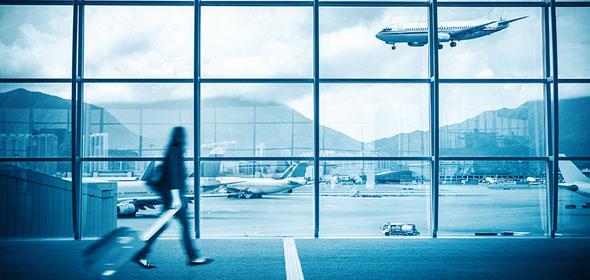
Travelers visiting new, unfamiliar and potentially hostile countries are at a natural disadvantage to those people looking to target such individuals on their home turf. The most vulnerable point in time and location is arriving into the airport of the new country; it’s an unavoidable hazard that deserves some preparation and consideration. GardaWorld understands the risks involved in moving through airports in challenging environments. We have learned lessons that shape the way we help clients travel safely and airport safety is top of the list when we plan support to our clients. This article highlights considerations and planning tips for people travelling without security in hostile environments.
These six tips will assist you in navigating through airports in hostile or high-risk environments, and are aimed at people already in hostile environments or those travelling to hostile environments.
1. Before you even go to the airport check the news. There have been several occasions in the past year where airports in regions where GardaWorld operates have either been closed by militia, subject to militant attacks or closed by the military as a precautionary measure. Attempting to travel during these periods can create extra unnecessary problems. Paranoid or overzealous security forces will often establish vehicle check points in the area surrounding airports which create large slow moving traffic queues, which are potential flash points themselves.
2. Take extra care when moving to and from airports on airport roads. In almost every city that GardaWorld operates in there is always an airport road; the airport road is an obvious channel point for expats travelling into and out of the country and therefore an easy focus point for groups with hostile intentions. Such groups have proven many times that the airport road is a rich source of information and a free flowing stream of targets. The airport roads in Baghdad, Sana’a, Lagos, Tripoli, Islamabad and Beirut have all experienced incidents within the last year and provide examples of why extra care needs to be taken when traveling to airports via airport roads. Planning to travel during non-rush hour daylight hours when possible is a good idea.
3. Think about what you’ll need upon your arrival, and how you can prepare in advance for emergency situations. Before you travel, familiarize yourself with the customs and other entry requirements of the country you’ll be visiting. Become familiar with the layout of the airport where you’ll be arriving by visiting its website. Check your overseas medical insurance coverage and arrange for supplemental coverage if necessary. Does it cover things like emergency expenses and medical evacuation?
4. Get your identification in order and decide how you will be paying for items at your destination. Make sure the information listed in your passport is filled-in and up-to-date. Make copies of your passport, scan credit cards and other important ID documents to keep with you and leave with family or friends along with your travel plans. Also, it’s a good idea to carry plenty of passport photos. Travelling with credit cards that have set limits is the best way to protect yourself against credit card fraud. Using your personal main bank account card in some countries is a very bad idea.
5. Prepare for arrival and departure. At the airport when checking in, move as quickly as possible to the check in area. One good idea is to use your phone camera to take a picture of your luggage. This can help in case it’s lost and can be passed to drivers or arrival support teams enabling you to move through the arrival airport with minimal fuss. Once checked in, move without delay into the departures area, these areas are generally more secure than the rest of the airport.
6. Be alert and aware of your surroundings at all times, in many countries the level of security is not at the point where people keep hold of their luggage or are suspicious of unattended luggage. In the US and Europe unattended luggage is treated with suspicion for good reason. If you notice unattended luggage in a hostile environment, do not move towards it or touch it. Move away and tell those within your group to stay away from the area. A decision to highlight the luggage to the security authorities needs careful consideration. There are examples where the message has been misconstrued as a threat or that somehow the person reporting the package is involved with placing the luggage or trying to cause disruption.
Clients of GardaWorld International Protective Services, including many of the world’s largest corporations, institutions and NGOs, trust us to protect their people traveling in complex and emerging markets. For more information, please visit https://www.garda.com/security-services.
Joe Hogan is Director of Emerging Markets for GardaWorld International Protective Services based in Dubai and is responsible for the company’s business efforts in Yemen and Nigeria.








